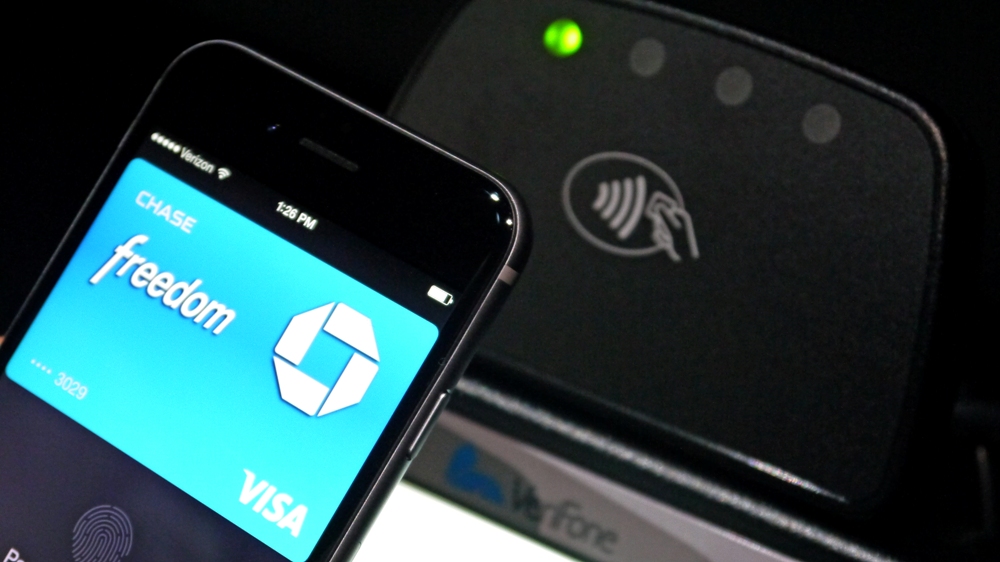Apple Pay: A tipping point in retail?
True to form, Apple is seldom first, but often the best

In true form, Apple didn't announce anything wholly original during its keynote. What Apple does best is design it better and deploy it to the market in a way that brings it forward into the public consciousness.
NFC technology isn't new and Apple is late to the table with payments. Google Wallet has been securely storing credit cards, debit cards, loyalty cards and offers for a while and Facebook is also close to acquiring a banking license in Europe .
But so far, NFC technology has failed to take off in the US, and though its popularity scores better in some parts of Asia and Europe, it's about the application, not the tech itself. Apple Pay will force innovation from the financial establishment, encourage fintech innovators, motivate retailers and drive consumer awareness.
- Check out everything businesses need to know about Apple Pay on our sister website, ITProPortal.com
The old guard are now paying attention
If we are moving to a society of cashless payments, as we go around our daily lives with a phone or device on us at all times, was this a revolutionary moment? Perhaps not, but it was an important gear-change.
This is a sector in dire need of innovation. Tim Cook's "entirely new payment process" laid bare the vulnerability of magnetic strips printed numbers on credit and debit cards, and there was a sense of mockery at the incumbents reliance on the physical, especially in the US, which is yet to adopt chip and PIN unlike Europe.
If the financial sector may once have sniffed at the idea that Apple could be threat to their businesses, they're certainly paying attention now.
The big banks and payments companies' senior executives were all over yesterday's event, and the biggest US banks are part of the Apple Pay service, representing 83% of total US payment volume. The service may be US-only for now, but Apple will be focused on the global roll-out.
Sign up for breaking news, reviews, opinion, top tech deals, and more.
A tipping point in retail
An app store with no apps makes no sense, and it took the iPhone to move the smartphone market towards a de-facto standard that others followed. I expect payments, and Apple Watch, to do the same for NFC.
Apple announced some retail partners – including Macy's and McDonald's – but other major retailers were notable for their absence. Some have already invested in their own mobile payments platforms, such as Walmart and Target in the US, in answer to Google's Wallet. From a practical perspective, there will have to be infrastructure changes with retailers to facilitate changes at purchase point, which just aren't there in the market right now.
But now that Apple is here, consumer awareness will build, retailers will look at integration, and software developers will looking to capitalise in between.
The introduction of Apple Pay shows how emerging technologies, such as developments in mobile payments and the introduction of wearables, will disrupt the financial services market.
Don't underestimate the importance of consumer trust
Trust in financial services companies, banks in particular, is low. People are tired of low value products and poor customer service. They are looking for a better offer from a brand that they trust - and innovative tech brands and have a captive audience.
Millennials are more open to the idea of banking with a company that isn't a bank - they want instant, secure purchasing, with as few interactions as possible. A company like Apple carries with it a level of trust with this generation that expects.
While this presents a challenge, banks should see Apple's foray into the payments space as an opportunity. They need to seize the moment and use Apple Pay as a way of perhaps understanding consumer spending habits, and using this knowledge to better help their customers.
The financial sector can remain relevant, and re-cover lost ground by integrating new technologies to offer services that helps consumer everyday lives.
It will be interesting to see the impact of the iCloud celebrity photo leak scandal, and its impact on trust in Apple's brand.
This is new territory for them, and thus far they've escaped the data furore that has hit Facebook and Google in recent years. Its trust will go so far as its tech remains trustworthy, hence the re-assurances that credit card numbers wouldn't be stored and data wouldn't be passed on to other parties.
Whether the existing banks, fintech innovators, or data companies will win out remains to be seen.
- Peter founded The BIO Agency in 2006, a pure-play digital strategic and creative agency focusing on innovation and delivering it. With 100 people it has grown to become one of the UK's most successful independent digital companies.